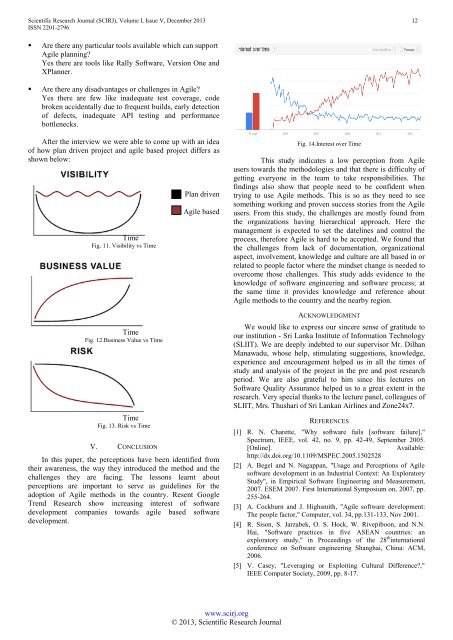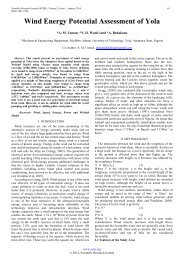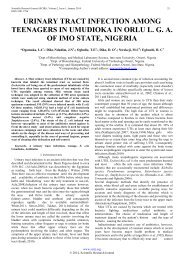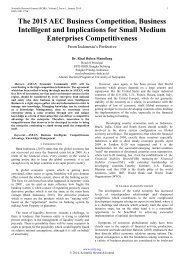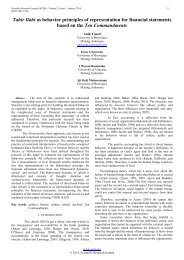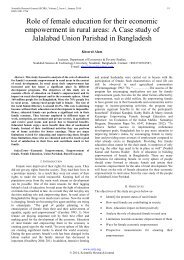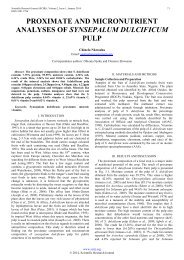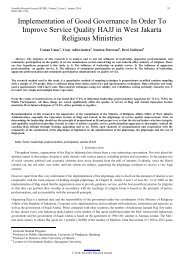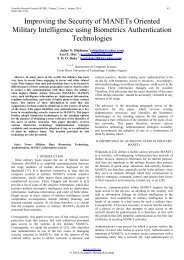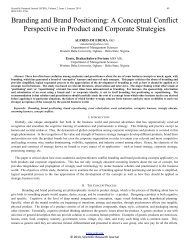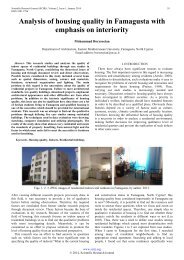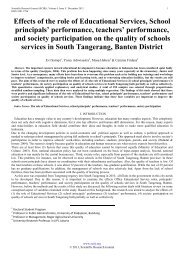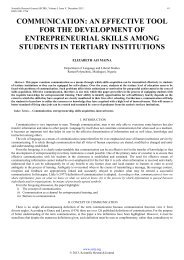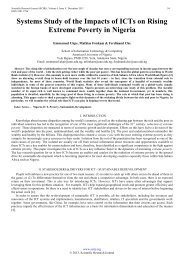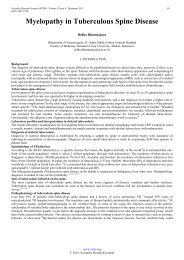An Empirical Study of Agile Software Development Methodologies: A Sri Lankan Perspective
The challenges with developing software systems led to a switch from traditional software methodologies like Waterfall towards the Agile software methodologies. Agile methodologies are an established process for developing software nowadays and are relatively considered to be quick. These Agile software methodologies have become more and more popular in recent times, and Scrum in particular has been adopted by many companies. The current literature suggests that these Agile methodologies are indeed more effective in project management, particularly in dealing with the complexity of modern software systems and the rapidly changing business environment. There is, however, less evidence on their usage among software practitioners in Sri Lanka. This paper empirically investigates the perceptions of Agile methodologies usage from software practitioners in Sri Lanka. We present the practices in Agile they perceived to deliver the most benefits. We aim to provide awareness and knowledge about Agile methodologies tithe practitioners in the country. This paper can serve as a reference to the early adopters who intend to use Agile methods in the future. http://www.scirj.org/december-2013-paper.php?rp=P121344
The challenges with developing software systems led to a switch from traditional software methodologies like Waterfall towards the Agile software methodologies. Agile methodologies are an established process for developing software nowadays and are relatively considered to be quick. These Agile software methodologies have become more and more popular in recent times, and Scrum in particular has been adopted by many companies. The current literature suggests that these Agile methodologies are indeed more effective in project management, particularly in dealing with the complexity of modern software systems and the rapidly changing business environment. There is, however, less evidence on their usage among software practitioners in Sri Lanka. This paper empirically investigates the perceptions of Agile methodologies usage from software practitioners in Sri Lanka. We present the practices in Agile they perceived to deliver the most benefits. We aim to provide awareness and knowledge about Agile methodologies tithe practitioners in the country. This paper can serve as a reference to the early adopters who intend to use Agile methods in the future.
http://www.scirj.org/december-2013-paper.php?rp=P121344
You also want an ePaper? Increase the reach of your titles
YUMPU automatically turns print PDFs into web optimized ePapers that Google loves.
Scientific Research Journal (SCIRJ), Volume I, Issue V, December 2013 12<br />
ISSN 2201-2796<br />
• Are there any particular tools available which can support<br />
<strong>Agile</strong> planning?<br />
Yes there are tools like Rally S<strong>of</strong>tware, Version One and<br />
XPlanner.<br />
• Are there any disadvantages or challenges in <strong>Agile</strong>?<br />
Yes there are few like inadequate test coverage, code<br />
broken accidentally due to frequent builds, early detection<br />
<strong>of</strong> defects, inadequate API testing and performance<br />
bottlenecks.<br />
After the interview we were able to come up with an idea<br />
<strong>of</strong> how plan driven project and agile based project differs as<br />
shown below:<br />
Time<br />
Fig. 11. Visibility vs Time<br />
Time<br />
Fig. 12.Business Value vs Time<br />
Time<br />
Fig. 13. Risk vs Time<br />
V. CONCLUSION<br />
Plan driven<br />
<strong>Agile</strong> based<br />
In this paper, the perceptions have been identified from<br />
their awareness, the way they introduced the method and the<br />
challenges they are facing. The lessons learnt about<br />
perceptions are important to serve as guidelines for the<br />
adoption <strong>of</strong> <strong>Agile</strong> methods in the country. Resent Google<br />
Trend Research show increasing interest <strong>of</strong> s<strong>of</strong>tware<br />
development companies towards agile based s<strong>of</strong>tware<br />
development.<br />
Fig. 14.Interest over Time<br />
This study indicates a low perception from <strong>Agile</strong><br />
users towards the methodologies and that there is difficulty <strong>of</strong><br />
getting everyone in the team to take responsibilities. The<br />
findings also show that people need to be confident when<br />
trying to use <strong>Agile</strong> methods. This is so as they need to see<br />
something working and proven success stories from the <strong>Agile</strong><br />
users. From this study, the challenges are mostly found from<br />
the organizations having hierarchical approach. Here the<br />
management is expected to set the datelines and control the<br />
process, therefore <strong>Agile</strong> is hard to be accepted. We found that<br />
the challenges from lack <strong>of</strong> documentation, organizational<br />
aspect, involvement, knowledge and culture are all based in or<br />
related to people factor where the mindset change is needed to<br />
overcome those challenges. This study adds evidence to the<br />
knowledge <strong>of</strong> s<strong>of</strong>tware engineering and s<strong>of</strong>tware process; at<br />
the same time it provides knowledge and reference about<br />
<strong>Agile</strong> methods to the country and the nearby region.<br />
ACKNOWLEDGMENT<br />
We would like to express our sincere sense <strong>of</strong> gratitude to<br />
our institution - <strong>Sri</strong> Lanka Institute <strong>of</strong> Information Technology<br />
(SLIIT). We are deeply indebted to our supervisor Mr. Dilhan<br />
Manawadu, whose help, stimulating suggestions, knowledge,<br />
experience and encouragement helped us in all the times <strong>of</strong><br />
study and analysis <strong>of</strong> the project in the pre and post research<br />
period. We are also grateful to him since his lectures on<br />
S<strong>of</strong>tware Quality Assurance helped us to a great extent in the<br />
research. Very special thanks to the lecture panel, colleagues <strong>of</strong><br />
SLIIT, Mrs. Thushari <strong>of</strong> <strong>Sri</strong> <strong>Lankan</strong> Airlines and Zone24x7.<br />
REFERENCES<br />
[1] R. N. Charette, "Why s<strong>of</strong>tware fails [s<strong>of</strong>tware failure],"<br />
Spectrum, IEEE, vol. 42, no. 9, pp. 42-49, September 2005.<br />
[Online].<br />
Available:<br />
http://dx.doi.org/10.1109/MSPEC.2005.1502528<br />
[2] A. Begel and N. Nagappan, "Usage and Perceptions <strong>of</strong> <strong>Agile</strong><br />
s<strong>of</strong>tware development in an Industrial Context: <strong>An</strong> Exploratory<br />
<strong>Study</strong>", in <strong>Empirical</strong> S<strong>of</strong>tware Engineering and Measurement,<br />
2007. ESEM 2007. First International Symposium on, 2007, pp.<br />
255-264.<br />
[3] A. Cockburn and J. Highsmith, "<strong>Agile</strong> s<strong>of</strong>tware development:<br />
The people factor," Computer, vol. 34, pp.131-133, Nov 2001.<br />
[4] R. Sison, S. Jarzabek, O. S. Hock, W. Rivepiboon, and N.N.<br />
Hai, "S<strong>of</strong>tware practices in five ASEAN countries: an<br />
exploratory study," in Proceedings <strong>of</strong> the 28 th international<br />
conference on S<strong>of</strong>tware engineering Shanghai, China: ACM,<br />
2006.<br />
[5] V. Casey, "Leveraging or Exploiting Cultural Difference?,"<br />
IEEE Computer Society, 2009, pp. 8-17.<br />
www.scirj.org<br />
© 2013, Scientific Research Journal


